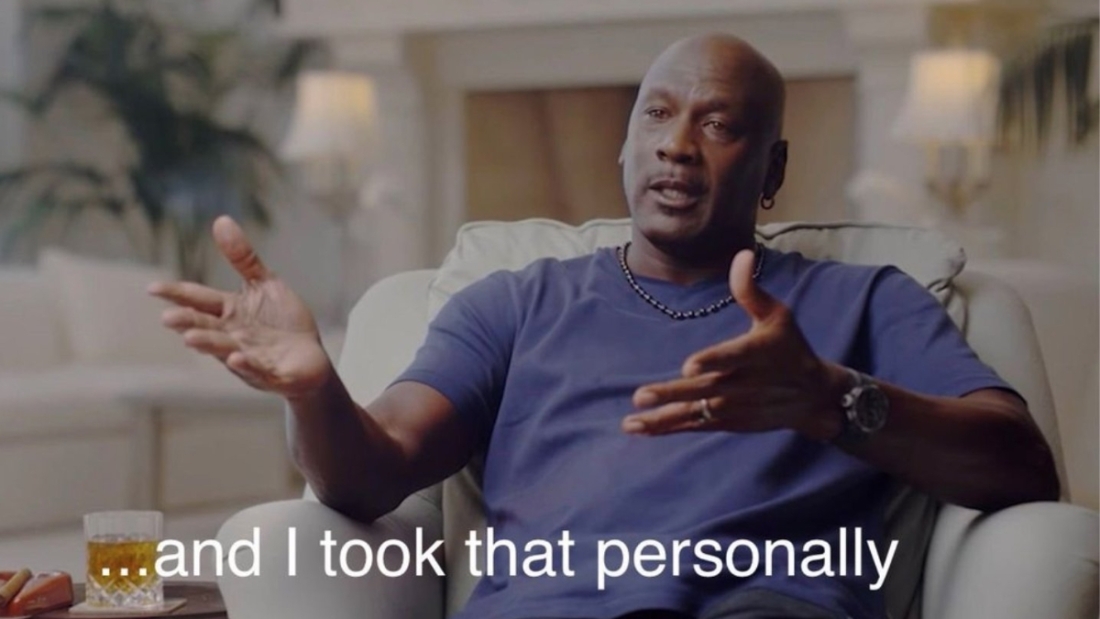I am here to announce that I hate the phrase “Don’t Take It Personally”. From someone who is so devoted to accountability, discipline and self-improvement, how can we not take certain things personally? I hate this phrase in all scenarios, from relationships, coaching, work, or any other types of use. The way I see it, it’s used as a tool to say some something foul and then control your reaction. Face it, “Don’t take it personally” is a cop out for hurting someone and it is nothing but a cheap cliché.
Why I Hate It
The phrase is dismissive, and it’s usually packaged with a smirk I want to smack. All it does is invalidate emotions, making people feel misunderstood or belittled; It often shifts blame, making it a contentious statement in sensitive situations. Explore ways to communicate effectively without alienating your audience. The phrase “Don’t Take It Personally” impacts individuals by making them feel unseen and unheard. It can amplify feelings of isolation and insignificance. This phrase discourages open communication, leading to a breakdown in relationships. Recognizing and validating emotions fosters healthier interactions.
In a world where individuality and personal expression are celebrated, being told “don’t take it personally” is one of the worst ways to lead any sentence. Whether it’s a critical remark, a rejection, or a dispute, this seemingly harmless phrase can often escalate negative emotions and hinder personal growth.
The Impact of “Don’t Take It Personally” on Emotional Well-Being
Hearing “don’t take it personally” can undermine our self-esteem and erode our confidence. It can make us question our own emotions and invalidate our experiences. By dismissing our feelings as an overreaction or sensitivity, we are denying ourselves the opportunity for growth and self-reflection. Instead of addressing the root cause of our emotions, we are encouraged to brush them aside and move on, which can lead to unresolved issues and lingering resentment. Speaking from experience here.
The Importance Of Acknowledging and Validating Emotions
In order to truly understand why we take things personally, it’s important to recognize the significance of our emotions. Emotions are a natural part of being human, and they serve as valuable indicators of our needs, desires, and boundaries. By acknowledging and validating our emotions, we can gain a deeper understanding of ourselves and others. This allows us to navigate conflicts and criticisms with empathy and compassion, rather than dismissing them with a simple “don’t take it personally.”
The Problem with Dismissing Feelings as “Taking It Personally”
When we dismiss someone’s emotions as “taking it personally,” we are belittling their experiences and denying the validity of their feelings. This can create a communication barrier and hinder the development of meaningful connections. By attributing our reactions solely to personal sensitivity, we fail to address the underlying issues that may be causing the emotional response. It’s crucial to recognize that our emotions are often rooted in something deeper, such as past experiences, insecurities, or unmet needs.
Alternative Ways to Respond to Criticism or Feedback
Instead of resorting to the dismissive phrase, there are alternate strategies that can promote growth and understanding. One approach is to practice active listening and empathy. By truly listening to what the other person is saying, we can gain insight into their perspective and foster a sense of connection. Additionally, reframing criticism as an opportunity for growth and learning can help shift our mindset and encourage personal development.
Empathy and Effective Communication in Personal and Professional Relationships
Empathy plays a crucial role in fostering healthy relationships, both personally and professionally. By putting ourselves in the shoes of others and understanding their experiences, we can create a safe and supportive environment. Effective communication involves not only expressing our own thoughts and feelings but also actively seeking to understand and validate the emotions of others. By embracing empathy, we can bridge the gap between dismissing someone’s feelings and truly connecting with them on a deeper level.
The Power of Constructive Criticism and Growth Mindset
Rather than avoiding criticism altogether, it’s important to recognize the value of constructive feedback. Constructive criticism can provide valuable insights and perspectives that can help us improve and grow. By cultivating a growth mindset, we can view criticism as an opportunity for self-improvement rather than a personal attack. Embracing a growth mindset allows us to approach challenges with resilience and a willingness to learn from our experiences.
Challenging Societal Norms and Expectations Around Emotions
Society often perpetuates the idea that showing emotions is a sign of weakness or vulnerability. However, it’s important to challenge these societal norms and expectations. By embracing our emotions and allowing ourselves to be vulnerable, we can foster deeper connections and create a more authentic and fulfilling life. Challenging the dismissive notion of “don’t take it personally” is a step towards creating a society that values emotional well-being and genuine human connection.
Encouraging a More Compassionate and Understanding Approach
Although this phrase can be well-intended, it fails to acknowledge whom you are saying it to. By dismissing our emotions, we deny ourselves the opportunity for growth, self-reflection, and meaningful relationships. Instead of brushing off others’ feelings with this condescending phrase, let’s strive to foster empathy, active listening, and open communication.
By embracing a more compassionate and understanding approach, we can navigate personal interactions with authenticity and confidence, leaving behind the dismissive notion of “don’t take it personally.” Because next time I hear it, I’ll at least make sure you regret finishing that sentence.



Leave A Comment